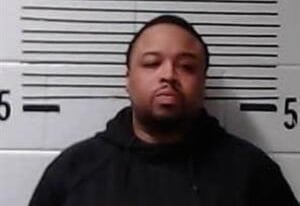U.S. Supreme Court will not stop Alabama from executing inmate with nitrogen gas

This undated photo provided by Alabama Department of Corrections shows inmate Kenneth Eugene Smith, who was convicted in a 1988 murder-for-hire slaying of a preacher’s wife. Smith, 57, is scheduled to receive a lethal injection at a south Alabama prison on Thursday, Nov. 17, 2022. (Alabama Department of Corrections via AP).
The U.S. Supreme Court will not halt the execution of Kenneth Smith, who is scheduled to be the first death row inmate in the U.S. to be put to death by nitrogen hypoxia.
The state’s window for the execution starts Thursday.
Smith’s attorneys last week asked the Supreme Court to pause the execution. On Wednesday, the justices declined Smith’s requests.
Nitrogen hypoxia has been approved for use in Alabama, Oklahoma and Mississippi but it has never been used.
Smith’s attorneys filed a separate request for a stay of execution in the Eleventh U.S. Circuit Court of Appeals, saying Alabama altered its execution plan by changing the schedule for Smith to have his last meal, according to CNN.
Alabama previously tried to execute Smith by lethal injection in 2022 but called it off before the drugs were administered because authorities were unable to connect the two intravenous lines to his veins. Smith’s attorneys said he was strapped to the gurney for nearly four hours.
His attorneys had argued that it would be unconstitutional for the state to attempt a second execution after he survived the first.
Last year, the U.S. Supreme Court sided with Smith after his lethal injection was called off when he said that he should be put to death by nitrogen hypoxia when he is ultimately executed. Later, his attorneys argued that he was being used as a test case and that the method of execution represented cruel and unusual punishment.
Smith is one of two men convicted in the murder-for-hire slaying of a preacher’s wife in 1988 that rocked a small community in Colbert County. Prosecutors said he and the other man were each paid $1,000 to kill Elizabeth Sennett on behalf of her husband, who was deeply in debt and wanted to collect on insurance.
Sennett, 45, was found dead in her home with eight stab wounds in the chest and one on each side of her neck, according to the coroner. Her husband, Charles Sennett Sr., killed himself when the investigation focused on him as a suspect, according to court documents.
(Copyright 2024. The Associated Press contributed to this report. All rights reserved. This material may not be published, broadcast, rewritten or redistributed without permission.)






